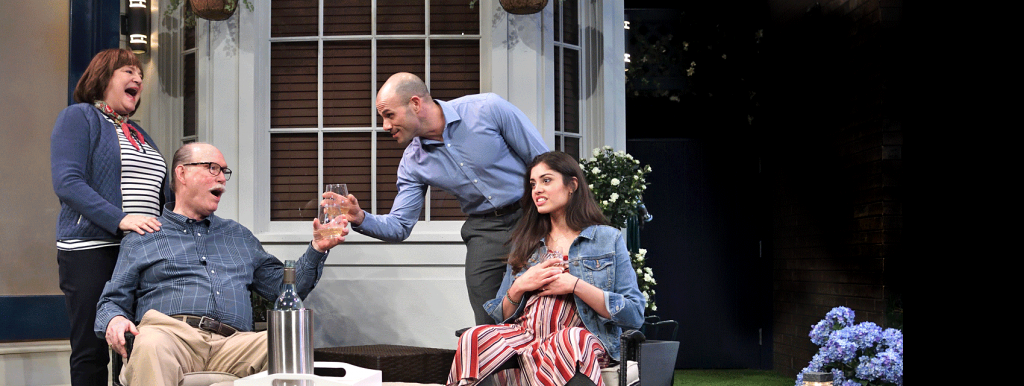Students in their final year of the Brown University/Trinity Rep MFA acting program typically perform in a mainstage Trinity Rep production alongside resident company members and guest actors who’ve become mentors throughout their study. One student’s expertise allowed him to take on a role unlike any of his peers. Let’s meet Gunnar Manchester, who will be performing all of the original music in Trinity Rep’s production Tiny Beautiful Things.
Gunnar grew up playing the violin and was a part of the Rhode Island Philharmonic Youth Orchestra. As he got older, he learned how to play other instruments, including trumpet, viola, ukulele, piano, and accordion. He is also a singer and a composer.
Artistic Director Curt Columbus recommended that Gunnar apply to the Brown/Trinity Rep MFA program when he directed him in a production of Uncle Vanya at the Gamm Theatre, in which Gunnar played multiple instruments. Knowing Gunnar’s musical talent, Curt, who is also directing Tiny Beautiful Things, asked Gunnar to compose and perform music instead of being cast in a “traditional” acting role.
Gunnar and Curt decided that the show’s music should be stripped down, acoustic, harkening back to traditional American folk songs, but for a modern era.
“The idea of Shaker hymns is one that I brought up during [my first meeting with Curt] because there’s something about that being the ultimate acoustic music,” Gunnar said. “They often just use their voices, people raising their voices together. And even the idea of performing in that community and the idea of advice columns are both to try to better other people’s lives.”
That human connection, of course, is key to Tiny Beautiful Things. Gunnar made sure to include the sense of community within the music he wrote and performs with the rest of the cast. And with this being just the second Trinity Rep stage production since the pandemic began, this is something Gunnar and Curt understood more than ever.
“(Writer) Cheryl Strayed is grappling with things herself, so she does not pretend to be some guru, but rather just another human being, offering the stories that she has herself experienced to other human beings who are seeking help, and hopefully illuminating solutions to their problems with her own experiences,” Gunnar said. “And in that way, these folk songs are shared, so many people raise up their voices together to create a unified sound in a way that is not complicated or pretentious.”
